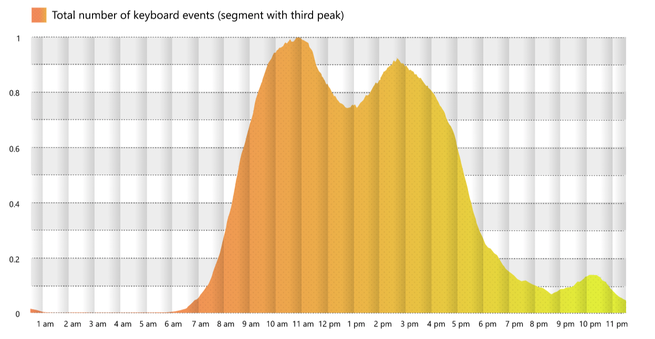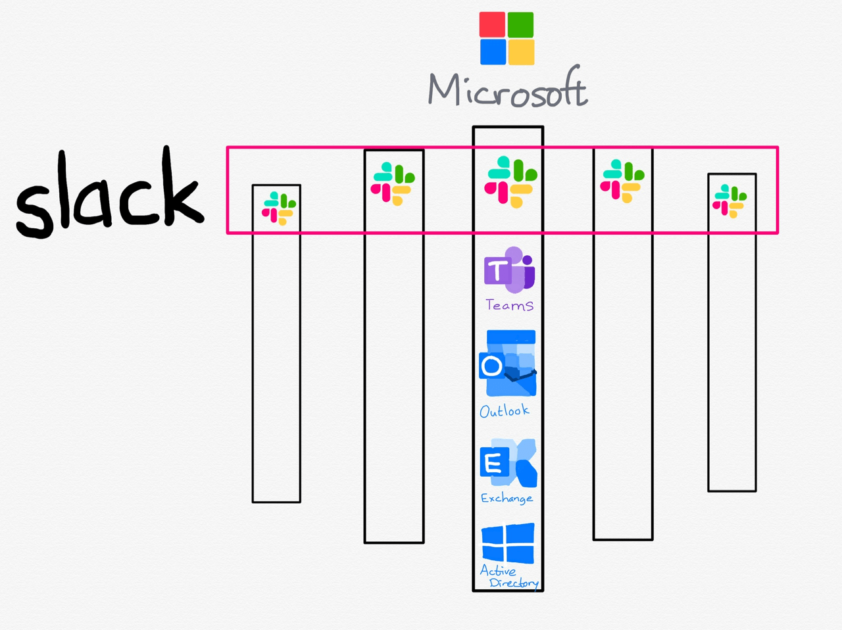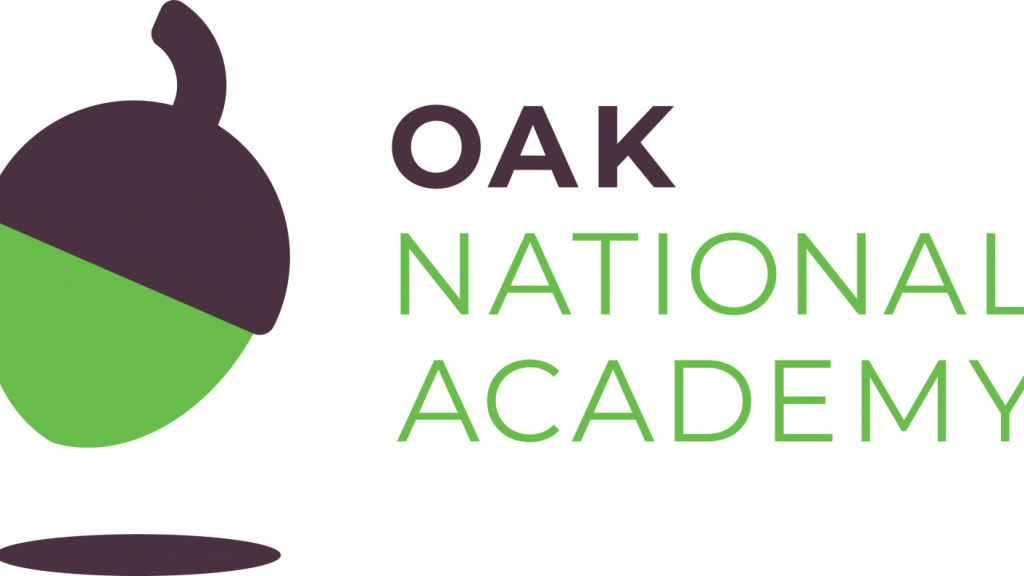- Windows is still a huge proprietary monster that rips billions of people from their privacy and rights every day.
- Microsoft is known for spreading FUD about "the dangers" of Free Software in order to keep governments and schools from dropping Windows in favor of FOSS.
- To secure their monopoly, Microsoft hooks up kids on Windows by giving out "free" licences to primary schools around the world. Drug dealers use the same tactics and give out free samples to secure new clients.
- Microsoft's Azure platform - even though it can run Linux VMs - is still a giant proprietary hypervisor.
The triple-peak work day is a worrying trend
When I first stepped into the world of consulting, I spent around 18 months working with a large organisation. The person I reported to in the organisation did all of his real work in the evenings, because his 9-5 day was completely full of meetings.
Talking in meetings isn’t work. I’ve never thought so, and never will.
Last week, Microsoft published a study that offers an eerie reflection of my working life. Traditionally, the researchers said, white-collar workers—or “knowledge workers,” in the modern parlance—have had two productivity peaks in their workday: just before lunch and just after lunch. But since the pandemic, a third and smaller bump of work has emerged in the late evening. Microsoft’s researchers refer to this phenomenon as the “triple peak day.”Source: The Rise of the 9 p.m. Work Hour | The Atlantic[…]
Several underlying phenomena are pushing up this third mountain of work. One is the flexibility of at-home work. For example, parents of young kids might interrupt their workday or cut it off early for school pickup, dinnertime, bedtime, and other child care. This leaves a rump of work that they finish up later. Other workers are night owls who get their second wind—or even their primary gust of creativity—just before bed.
[...]Something else is pushing work into our evenings: White-collar work has become a bonanza of meetings. In the first months of the pandemic, Microsoft saw online meetings soar as offices shut down. By the end of 2020, the number of meetings had doubled. In 2021, it just kept growing. This year it’s hit an all-time high.
Taste ripens at the expense of happiness

🧐 Habits, Data, and Things That Go Bump in the Night: Microsoft for Education — "Microsoft’s ubiquity, however, is sometimes mistaken for banality. Because it is everywhere, because we have all used it forever, we assume we can trust it."
I haven't voluntarily used something made by Microsoft (as opposed to acquired by it) for... about 20 years?
⏳ You Can Set Screen-Time Rules That Don’t Ruin Your Kids’ Lives — "Bear in mind that the limits you set need not be a specific number of minutes. Try to think of other, more natural ways of breaking up their activities. Maybe your kids play one game before tackling homework. Also, consider granting them one day per weekend with fewer restrictions on screen-time socializing. Giving them more autonomy over their weekends helps approximate the fun and flexibility of their pre-COVID world, and lets them unwind and hang out more with their friends."
This has been really hard to managed as a parent, and it's easy to think that you're always doing it wrong.
💬 Why do we keep on telling others what to do? — "Usually starting a conversation out with telling people what you feel they are doing wrong is going to make it a negative conversation all in all, and I tend to believe that it's better to follow “the campfire rule”, try to make all people taking part in a conversation end up a bit better off than what they were when they started the conversation, and telling people what to do or what not to are going straight against this."
Post-therapy, I'm much better at focusing on changing myself than trying to change others. I'd recommend therapy, but that might be construed as an implicit instruction...
🙌 Twitter Considers Subscription Fee for Tweetdeck, Unique Content — "To explore potential options outside ad sales, a number of Twitter teams are researching subscription offerings, including one using the code name “Rogue One,” according to people familiar with the effort. At least one idea being considered is related to “tipping,” or the ability for users to pay the people they follow for exclusive content, said the people, who asked not to be named because the discussions are internal. Other possible ways to generate recurring revenue include charging for the use of services like Tweetdeck or advanced user features like “undo send” or profile-customization options."
This is fantastic news. It would destroy Twitter as it currently stands, but that's fine as it's much worse than it was a decade ago.
🔒 Do lockdowns work? — "It's absurd thinking, but the sceptics have finally found an argument that cannot be categorically disproved. Lockdowns have a scientific rational: you can't transmit a virus to people you don't meet. Contrary to what Toby says in his article, they also have historic precedents: during the Spanish Flu, cities such as Philadelphia closed shops, churches, schools, bars and restaurants by law (they also made face masks mandatory). And now we have numerous natural experiments from around the world showing that infection rates fall when lockdowns are introduced."
There will always be idiots who try and use their influence and eloquence to ensure they're heard. Thankfully, there are people like this who can dismantle their arguments brick-by-brick.
Quotation-as-title by Jules Renard. Image. by Elena Mozhvilo.
Data transfer as a 'hedge'?
This is an interesting development:
This, of course, would probably not have happened without GDPR. So how does it work?Today, Google, Facebook, Microsoft, and Twitter joined to announce a new standards initiative called the Data Transfer Project, designed as a new way to move data between platforms. In a blog post, Google described the project as letting users “transfer data directly from one service to another, without needing to download and re-upload it.”
I may be being cynical, but just because something is open source doesn't mean that it's a level playing field for everyone. In fact, I'd wager that this is large companies hedging against new entrants to the market.The existing code for the project is available open-source on GitHub, along with a white paper describing its scope. Much of the codebase consists of “adapters” that can translate proprietary APIs into an interoperable transfer, making Instagram data workable for Flickr and vice versa. Between those adapters, engineers have also built a system to encrypt the data in transit, issuing forward-secret keys for each transaction. Notably, that system is focused on one-time transfers rather than the continuous interoperability enabled by many APIs.
This would be great if it pans out in the way it's presented in the article. My 20+ years experience on the web, however, would suggest otherwise.The project was envisioned as an open-source standard, and many of the engineers involved say a broader shift in governance will be necessary if the standard is successful. “In the long term, we want there to be a consortium of industry leaders, consumer groups, government groups,” says Fair. “But until we have a reasonable critical mass, it’s not an interesting conversation.”
Source: The Verge
Git yourself off that platform!
This week, tens of thousands of open source projects migrated their codebase away from GitHub to alternatives such as GitLab. Why? Because Microsoft announced that they’ve bought GitHub for $7.5 billion.
For those who don’t spend time in the heady world of software and web development, that sounds like a lot of money for something with a silly name. It will hopefully make things a little clearer to explain that Git is described by Wikipedia in the following way:
Git is a version control system for tracking changes in computer files and coordinating work on those files among multiple people. It is primarily used for source code management in software development, but it can be used to keep track of changes in any set of files. As a distributed revision control system it is aimed at speed, data integrity, and support for distributed, non-linear workflows.Despite GitHub not being open source, it did, until this week host most of the world's open source projects. You can currently use GitHub for free if your project's code is public, and the company sells the ability to create private repositories. As far as I'm aware it's never turned a profit.
I’ve seen lots of reactions to the Microsoft acquistion news, but one of the more insightful posts comes from Louis-Philippe Véronneau. Like me, he doesn’t trust Microsoft at all.
Some people might be fine with Microsoft's takeover, but to me it's the straw that breaks the camel's back. For a few years now, MS has been running a large marketing campaign on how they love Linux and suddenly decided to embrace Free Software in all of its forms. More like MS BS to me.Yep.Let us take a moment to remind ourselves that:
I’m thankful that we’re now starting the MoodleNet project in a post-GDPR and post-GitHub world. We’ll be using GitLab — initially via their hosted service, but longer-term as a self-hosted solution — and as many open-source products and services as possible.
Interestingly, Véronneau notes that you can use Debian’s infrastructure (terms) or RiseUp’s infrastructure (terms) if your project aligns with their ethos.
Source: Louis-Philippe Véronneau



